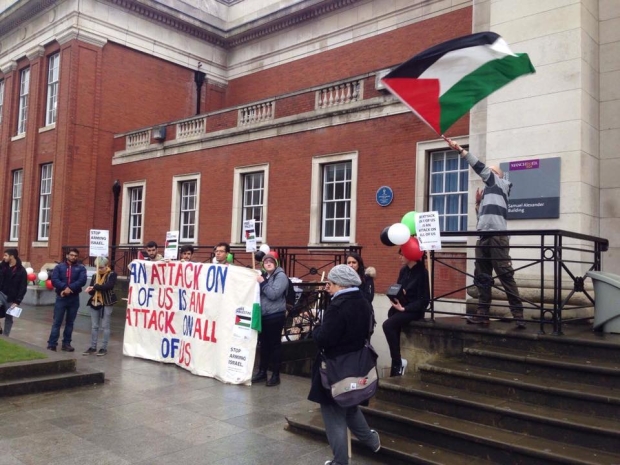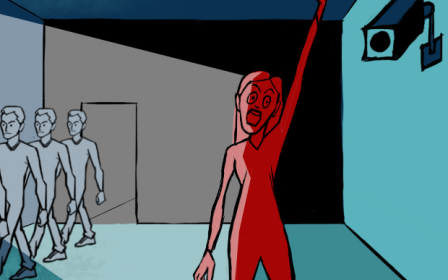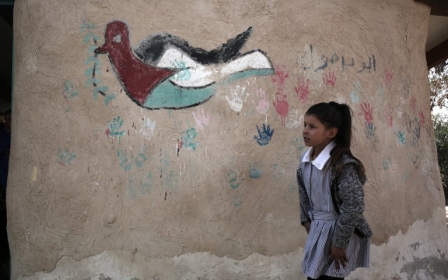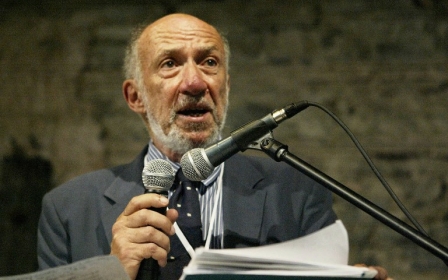UK universities must stop repressing Palestinian activism
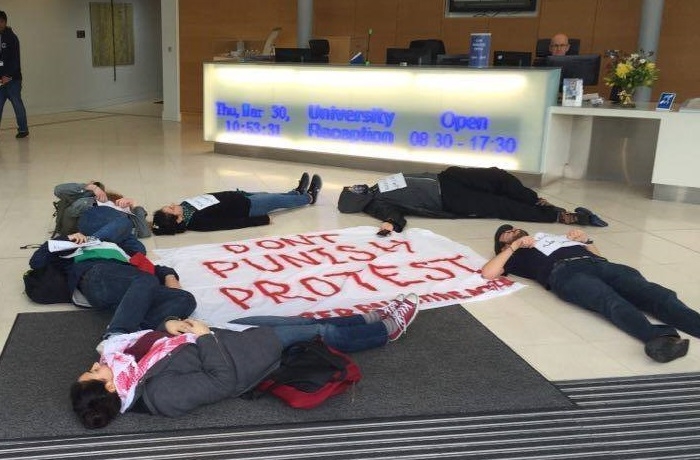
On 30 March 1976, Palestinians across historic Palestine rallied against the Israeli state’s plans to appropriate 2,000 hectares of their land in the Galilee.
Exasperated by the state’s continuous settler colonial expansion and subjugation of the Palestinian citizens, mass demonstrations were held not only in the Galilee, but also in the Naqab, the West Bank, Gaza and in the diaspora communities. Importantly, however, this was one of the first collective, organised and popular Palestinian actions against the state from within the 1948 borders.
The repression at UK universities reached a crescendo in late February, when following a leaked letter from the minister for universities, several events were cancelled by UK universities
The main protests took place in three villages in the Galilee: Sakhnin, Arabeh and Deir Hana. They later became known as the Land Day Triangle. In response to these demonstrations, the Israeli army and police attacked the protests with serious military force, killing six Palestinians - Khayr Muhammad Yasin, Raja Hussein Abu Riya, Khader Abd Khalil, Khadija Juhayna, Muhammad Yusuf Taha and Rafat Zuhairi - and injuring hundreds.
Land Day, for many Palestinians inside Israel, was a turning point in their relations with and attitudes towards the state. Where before many had been fighting for civic equality within the system, the brutal response of the Israeli forces and the indifferent reaction from the Israeli public to their plight demonstrated with certainty that equality would never be achieved under Zionist rule.
Against repression
Today, in commemoration of Land Day and its legacy of resistance and organising, students at various UK universities protested the repression of Palestine activism on campuses this year.
The repression reached a crescendo during Israeli Apartheid Week in late February, when following a leaked letter from Jo Johnson, the minister for universities, several events were cancelled by university administrations. At the University of Central Lancashire (UCLan) a lecture on BDS was cancelled and similarly at the University of Exeter a mock checkpoint was not permitted to go ahead despite receiving the necessary permissions.
This repression of Palestine activists mirrors crackdowns on other student activists, in particular those who raise questions over student fees and university investments
At the University of Manchester, two students are currently facing a disciplinary hearing after carrying out a banner drop reading “Stop Arming Israel” in an attempt to draw attention to the university’s violation of its own ethical investment policy.
The student activists claim that the university violates this policy by holding investments in companies such as Caterpillar, which supplies the armoured bulldozers for the Israel Defence Forces, and vehicles used to raze Palestinian homes in the occupied territories.
In support of these students and activist groups, a nationwide campaign entitled “Don’t Punish Protest” has been launched. Students at the University of Sussex did a banner drop on Tuesday, at the University of Manchester students held a protest on Wednesday in support of the two facing disciplinary action, while Exeter University activists held a “die-in” and also carried out a banner drop today.
Palestinian students in the UK and their allies also released a statement asserting their right to protest the Israeli apartheid regime on UK campuses, and demanding that university administrations cease their efforts to punish and block such protests.
Cracks in the regime?
In Palestine, Land Day has been commemorated every year since 1976. Emphasising the inseparable connection between the Palestinian people and their land, Palestinians not only protest the ongoing settler colonial project, they also plant trees as an act of resistance.
We are now coming up to 69 years since the settler-colonial project in Palestine was institutionalised as the state of Israel
In the Galilee this afternoon, thousands marched between the villages of the Land Day Triangle carrying pictures of martyrs and chanting “long live Palestine”. In Nablus, activists attempted to plant trees only to be met by brutal attacks by Israeli army forces. Forty-five people are said to have been injured by rubber bullets and tear gas.
The commemoration of Land Day in 2017 is a reminder that the displacement and oppression of Palestinians is an ongoing settler colonial process. We are now coming up to 69 years since the settler-colonial project in Palestine was institutionalised as the state of Israel, and 50 years since Israel occupied the West Bank, Gaza and Golan Heights. This year also marks 100 years since the Balfour Declaration, the British document that guaranteed the establishment of a Jewish homeland in the place of Palestine.
In this context, Land Day’s legacy of resistance and organising remains as important today as ever. Indeed, on Tuesday as part of Palestine Awareness Week at George Washington University, renowned academic and activist Angela Davis declared: “This is the South Africa moment for the Palestinian people."
The extensive and aggressive attempts to shut down Palestine student activism on campuses, not just in the UK but also in the US, might indeed mean that Israel’s apartheid regime is cracking.
- Yara Hawari is a British Palestinian scholar-activist, whose writing continues to be informed by her commitment to decolonisation. Originally from the Galilee, she has spent her life between Palestine and the UK. She is currently a final year PhD Candidate at the European Centre for Palestine Studies at the University of Exeter. She is also a policy member of the Al-Shabaka think tank and writes for various media outlets, including the Electronic Intifada and the Independent.
The views expressed in this article belong to the author and do not necessarily reflect the editorial policy of Middle East Eye.
Photo: On 30 March 2017, students at Exeter University participate in a 'Die In' to commemorate Land Day and launch 'Don't Punish Protest (MEE/Yara Hawari)
New MEE newsletter: Jerusalem Dispatch
Sign up to get the latest insights and analysis on Israel-Palestine, alongside Turkey Unpacked and other MEE newsletters
Middle East Eye delivers independent and unrivalled coverage and analysis of the Middle East, North Africa and beyond. To learn more about republishing this content and the associated fees, please fill out this form. More about MEE can be found here.



